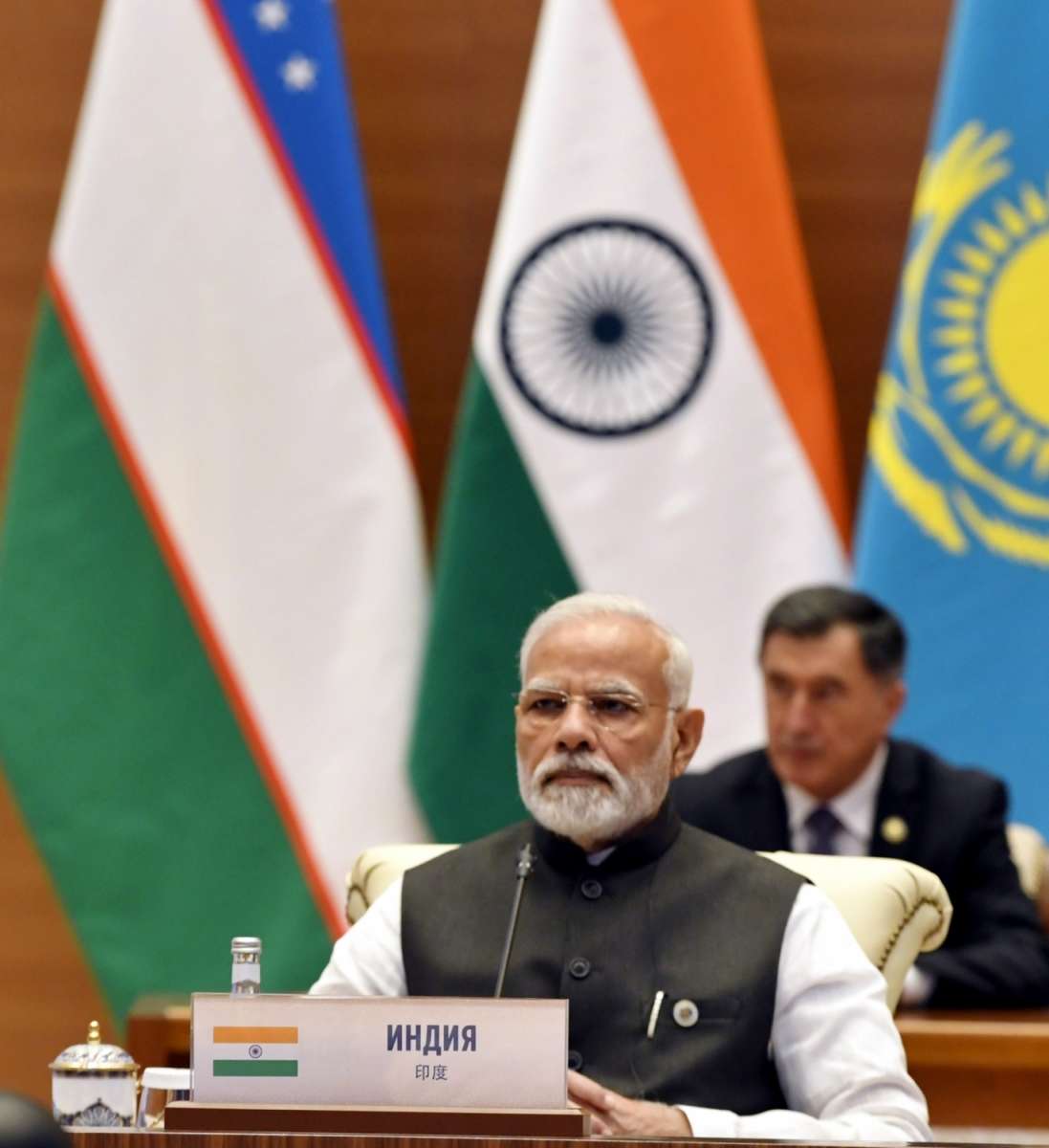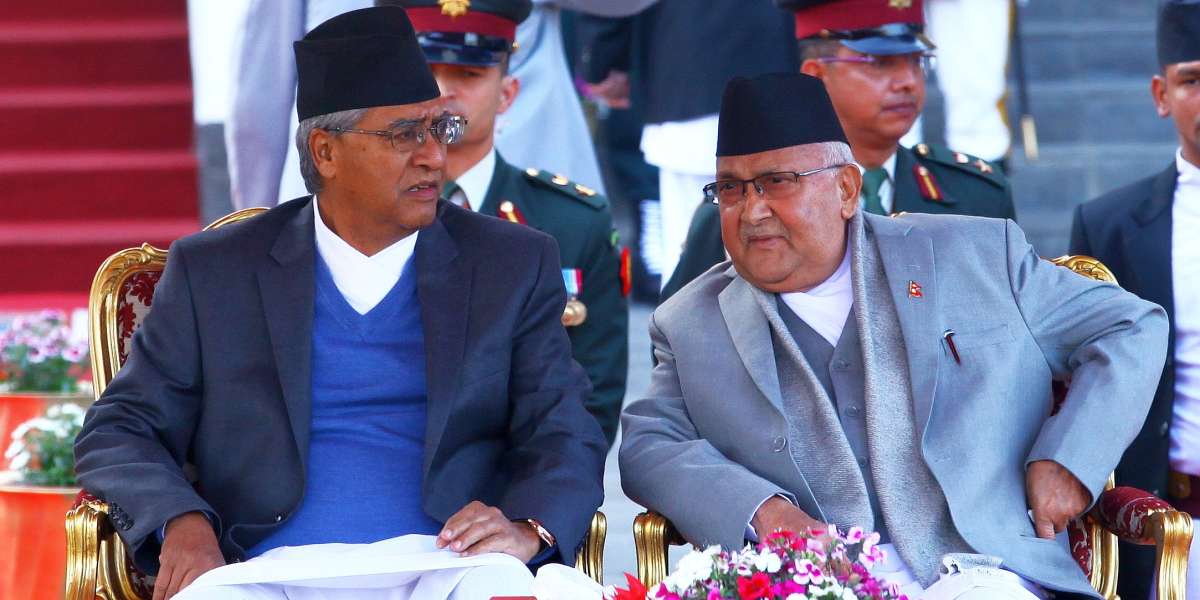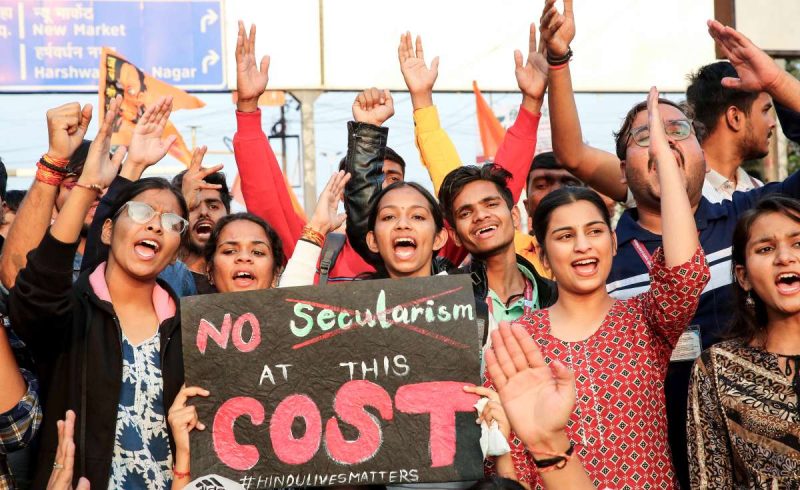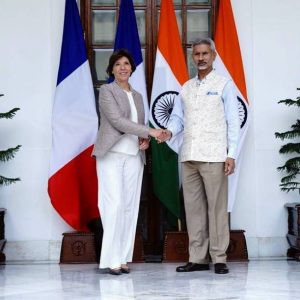India has crucial geopolitical interests in Eurasia, driven by both security and commercial considerations, writes Dr Chandan Kumar
In 2023, India took the helm of two significant international groupings: the Shanghai Cooperation Organization (SCO) and the G20. On July 4, 2023, the country hosted the 22nd Summit of the SCO Council of Heads of State in a virtual format, chaired by Prime Minister Narendra Modi.
This event marked India’s first time leading the SCO, emphasising its ambition to strengthen ties with the five Central Asian countries.
India’s chairmanship of the SCO occurred during a period of global upheaval, marked by the COVID-19 pandemic, the Taliban’s takeover of Afghanistan, and the ongoing Russia-Ukraine war. These events have disrupted established international political norms, presenting India with a unique opportunity to guide discussions on critical issues affecting Eurasian politics and beyond.
Strengthening relations with Central Asia, a region of significant geostrategic importance and part of India’s ‘extended neighborhood,’ was a primary objective for Indian policymakers.
Through the SCO, India aimed to foster multilateral cooperation with the Central Asian republics, enhance connectivity, boost trade relations, and promote regional security.
India became a full member of the Shanghai Cooperation Organization (SCO) in 2017 during the annual SCO Heads of State summit in Astana, Kazakhstan, alongside Pakistan. Prior to this, India held Observer Status at the SCO since 2005.
Recognizing the organization’s potential, India initiated the process for full membership in 2015 at the Ufa Summit in Russia. This move aligned with India’s renewed global engagement efforts following Prime Minister Modi’s assumption of office in 2014, alongside a strategic push to strengthen ties with the Central Asian region, which had previously been of secondary importance to Indian foreign policy.
Additional motivations for India joining the SCO included enhancing connectivity between Central and South Asia, promoting energy security, and countering terrorism and illegal narcotics trade.
The Eurasian region would have become a hotbed of ethnic strife, regime changes, and radicalism without this organization. Smaller Central Asian states require assistance from external powers to maintain internal stability and counter external influences.
They face existential threats from major regional powers and radical influences in neighboring areas. Notably, the SCO has established a geopolitical balance, aligning the interests of major powers in Central Asia. However, it has also limited Western influence in Eurasia.
In summary, the SCO has contributed in three key ways: fostering political stability in Central Asia, harmonizing the interests of major powers in the region, and curbing the spread of terrorism, separatism, and radicalism.
India’s entry into the SCO in 2017 has significantly altered the organization’s dynamics. The SCO can no longer be labeled as a coalition of authoritarian states with an anti-Western agenda. Russia and the Central Asian states supported India’s inclusion, viewing it as a benevolent stabilizer and a potential regional investor. However, there are serious concerns about how the ongoing Sino-Indian and Pakistan-India border conflicts might affect the organization. Additionally, Beijing and Moscow will need to allow New Delhi more influence as it becomes increasingly active and involved in the region.
Currently, as a new member, India does not aggressively push its own agenda, focusing instead on collaborative developmental goals and avoiding confrontation. Nonetheless, as India’s engagement in Central Asia deepens, its role within the SCO is expected to evolve.
The Shanghai Cooperation Organization (SCO) remains highly significant for India for several reasons. First, it aligns well with India’s broader strategy of multi-alignment, complementing its participation in other groups like BRICS and reinforcing its policy of maintaining diverse international partnerships. Additionally, India has crucial geopolitical interests in Eurasia, driven by both security and commercial considerations, as stability in Central Asia is vital for India’s own security.
Without SCO membership, India’s efforts to engage with Central Asia would be hindered, potentially allowing China and Pakistan to create unfavorable conditions for India’s involvement in the region.
Furthermore, India’s membership in the SCO supports Russia and the Central Asian states in balancing China’s influence in the region. Central Asian states are also eager to strengthen economic ties with India, making it imperative for New Delhi to prioritize involvement in Central Asia’s developmental, connectivity, and infrastructural projects.
In recent years, the highest political offices in India have actively pushed for connectivity projects, coinciding with India’s membership in the SCO and its proactive engagement with the region. This initiative aligns with a parallel desire among Central Asian states, particularly Uzbekistan, to enhance connections between Central Asia and South Asia.
For example, during the 2022 Samarkand Summit in Uzbekistan, Prime Minister Modi held discussions with Russia, Iran, and Uzbekistan to accelerate connectivity projects along the North-South axis. These projects include the International North-South Transport Corridor (INSTC) and the Chabahar Project, with efforts to integrate Chabahar into the INSTC framework.
India has also utilised the SCO platform to engage with Central Asian states on regional security issues, particularly concerning terrorism emanating from Afghanistan. Uzbekistan, Tajikistan, and Turkmenistan, three of the five Central Asian states, share borders with Afghanistan and are crucial stakeholders in the region’s stability. Today, the SCO needs to put in place measures to counter threats of ISIS emerging from Afghanistan.
India’s proactive involvement in the SCO demonstrates its commitment to fostering regional stability, enhancing connectivity, and promoting economic cooperation in Eurasia.
As India’s role within the SCO evolves, its influence in Central Asia is expected to grow, aligning with its broader strategic objectives in the region.
(Dr. Chandan Kumar, Ph. D in Buddhist History, is a young scholar. He is working as Assistant Professor, Department of History, Satyawati College, University of Delhi). (ANI)
ALSO READ: India’s GRSE to build advanced tug for Bangladesh Navy














